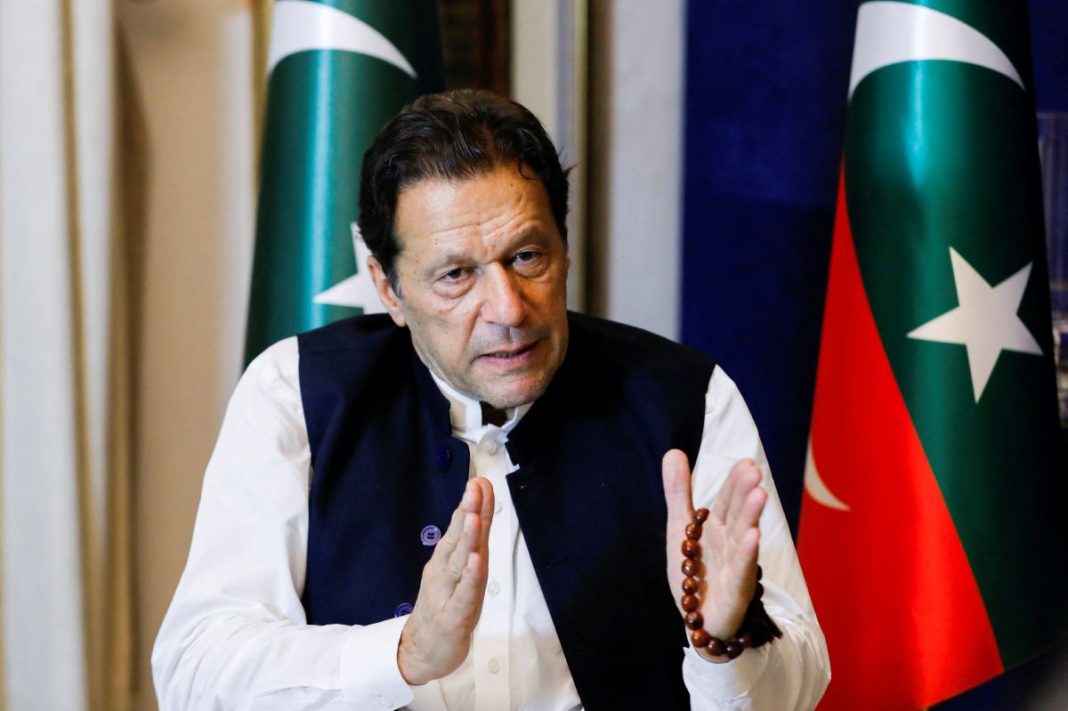The former cricket star is embroiled in the latest, critical phase of a decades-old rivalry between civilian politicians and the powerful military, which has ruled directly or overseen governments throughout Pakistan’s history.
The face-off has brought widespread protests by Khan’s supporters, raising new fears about the stability of the nuclear-armed country as it struggles with its worst economic crisis in decades.
Asif on Wednesday told reporters that Khan’s Pakistan Tehreek-e-Insaf (PTI) party had attacked the “very basis of state”, which could not be tolerated.
“It is under consideration to ban PTI,” he said, adding the parliament would have to give final approval for a government decision to ban the party.
The minister referred to Khan’s protesting supporters who this month attacked military installations, including army headquarters, and government buildings.
PTI party lawyer Ali Zafar said any such move would be challenged in court. He stated an entire party cannot be blamed for acts committed by individuals.
Khan became prime minister in 2018 with the tacit support of the military, though both sides denied it at the time.
But Khan later fell out with the generals after being seen as having tried to interfere in key promotions in the security sphere, and he was removed as prime minister after losing a confidence vote in 2022.
Khan, 70, has since been campaigning for a snap general election, rallying supporters across the country, but the prime minister who replaced him, Shehbaz Sharif, has rejected the call for an election before the one due by October this year.
Khan is also facing corruption charges that he has dismissed as untrue and politically motivated in a bid to banish him from politics in an election year.
Khan was arrested on May 9 in connection with the charges, sparking the protests by his supporters and their attacks on the military facilities. He was later freed on bail.
Anti-corruption agency investigators questioned him for about three hours on Tuesday.
